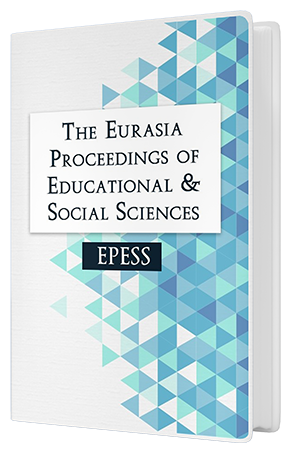COLLEGE STUDENTS’ PERCEPTIONS OF LEARNING MATHEMATICS AND USING COMPUTERS
Keywords:
Computer education, confidence, higher education, mathematics educationAbstract
Mathematics is the key course to interpret the science and nature. A positive attitude should be improved by learners to comprehend the logic of mathematics. However, most of the research indicated that they were not interested in learning and studying mathematics. Instead of understanding the basic principles, many students preferred to use sophisticated software packages or graphing calculators for solving mathematics problems. Thus, these tools prevent the improvement of their mathematical skills. This study investigates students’ confidence when learning mathematics and using computers. Besides, the research examines the effects of computers and graphing calculators in the learning of mathematics on the students’ opinions. The study was conducted with 230 technical vocational school students. The data of the research was collected using a survey of “Attitudes to Technology in Mathematics Learning Questionnaire”. The results of the study indicated that many students were not interested in learning and understanding the subjects while studying mathematics on pen and paper. They preferred to solve mathematics problems with the help of sophisticated mathematics software packages or graphing calculators. Detailed results and recommendations based on the students’ confidence and perceptions are presented in the study.Downloads
Published
Issue
Section
License
Copyright (c) 2016 The Eurasia Proceedings of Educational and Social Sciences

This work is licensed under a Creative Commons Attribution-NonCommercial-ShareAlike 4.0 International License.
The articles may be used for research, teaching, and private study purposes. Any substantial or systematic reproduction, redistribution, reselling, loan, sub-licensing, systematic supply, or distribution in any form to anyone is expressly forbidden. Authors alone are responsible for the contents of their articles. The journal owns the copyright of the articles. The publisher shall not be liable for any loss, actions, claims, proceedings, demand, or costs or damages whatsoever or howsoever caused arising directly or indirectly in connection with or arising out of the use of the research material. All authors are requested to disclose any actual or potential conflict of interest including any financial, personal or other relationships with other people or organizations regarding the submitted work.




